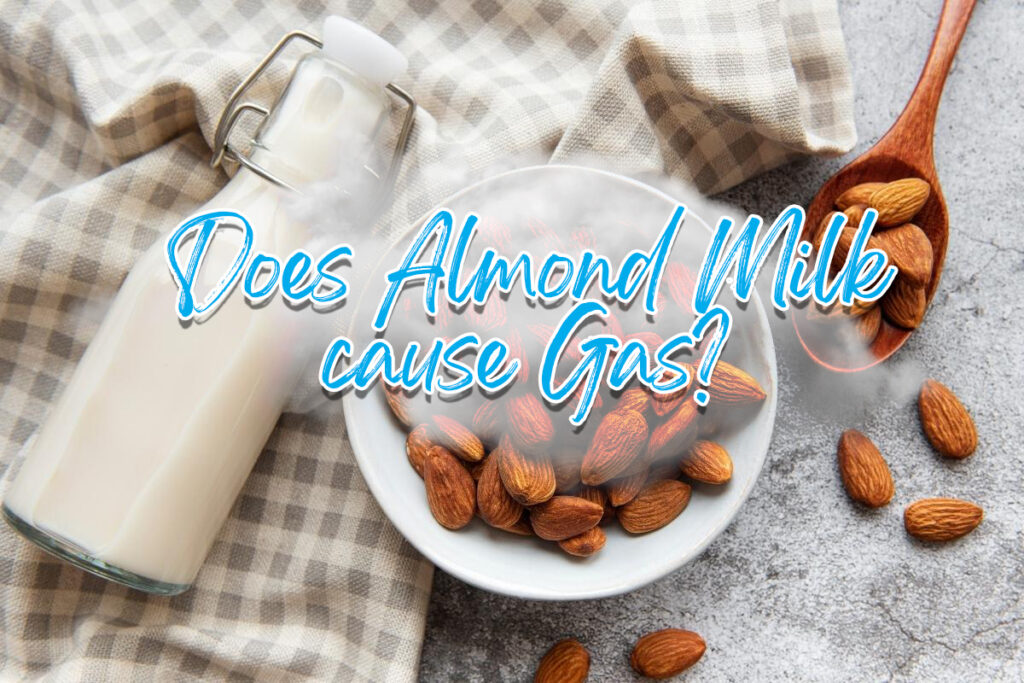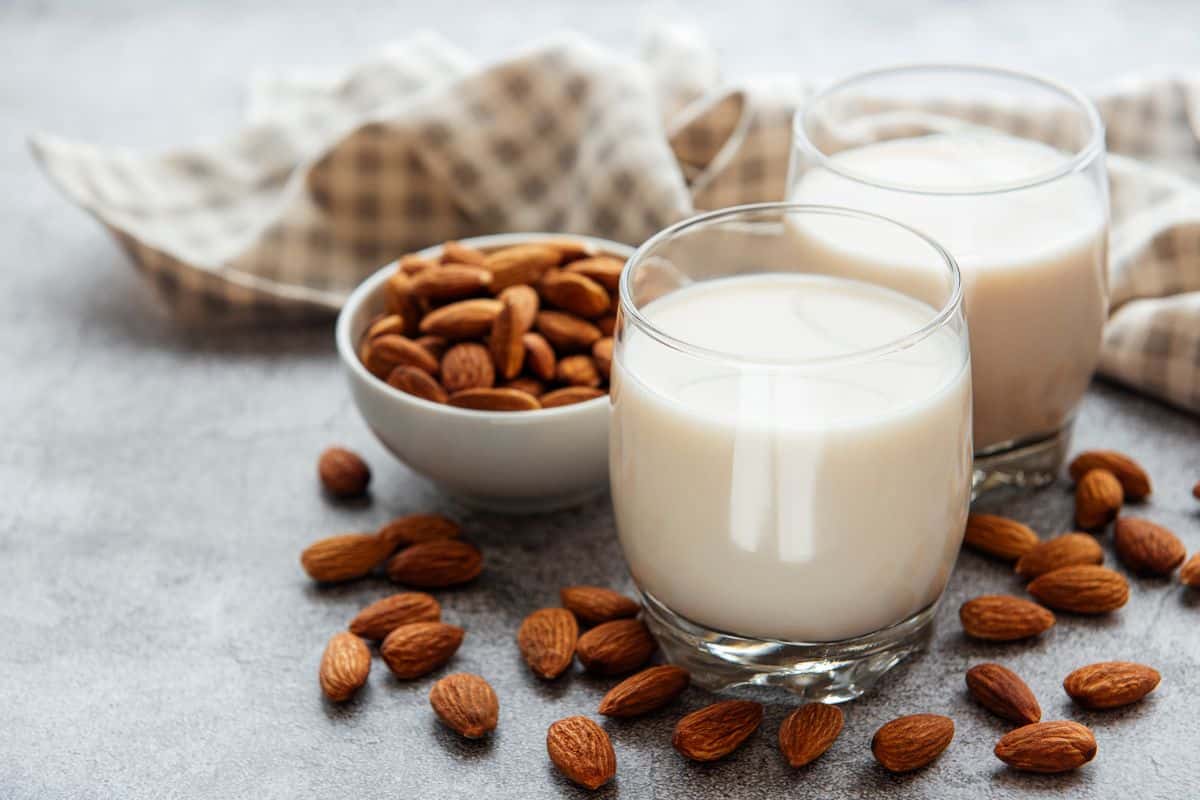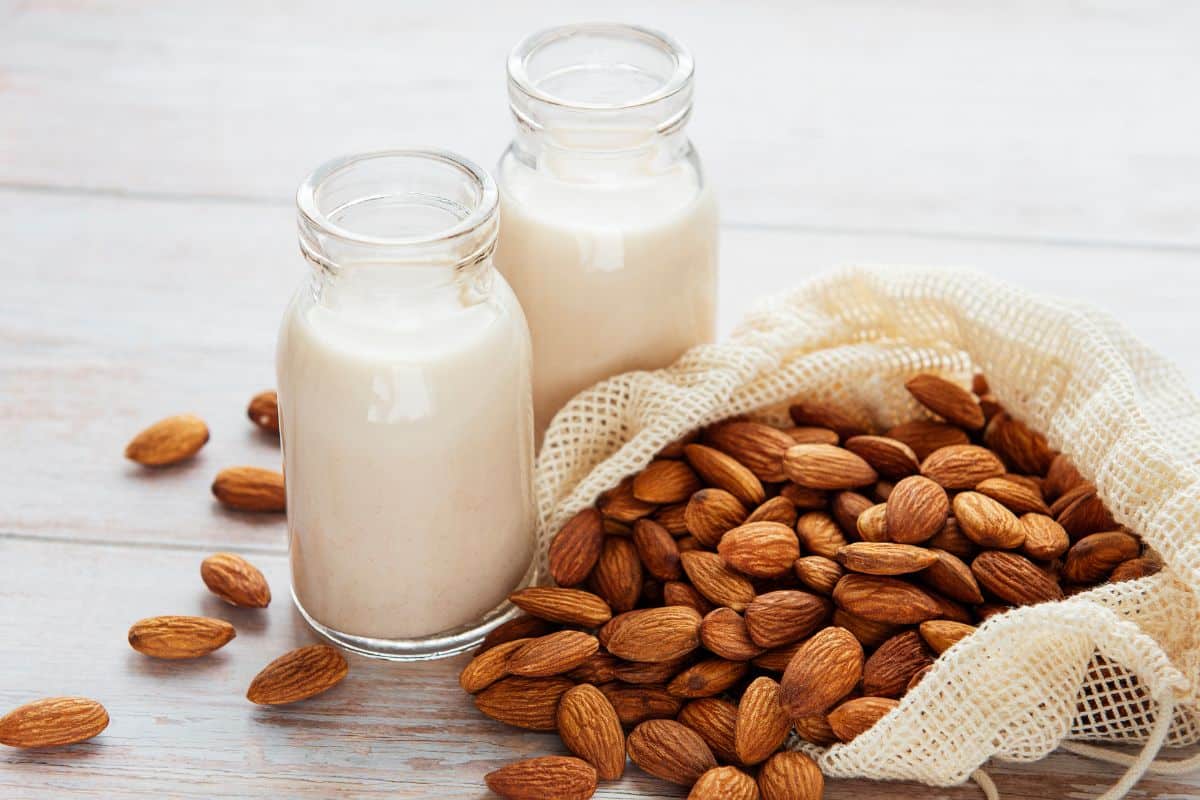Does Almond Milk Cause Gas? (Updated 2025)

Have you ever tried consuming almond milk and had digestive problems right after you drink it? Don’t worry, you are not alone, and nothing is weird in your tummy.
But, does almond milk really causes digestive issues, specifically gas? Let’s find out more about it here.
Can Almond Milk Cause Gas?
Most people will not get gas from drinking almond milk. But almond milk might cause intolerance symptoms like flatulence in some people.
Many cases can be traced back to an allergy to nuts or other substances in milk that the individual was previously unaware of.
The issue arises because of the stabilizers used to extend the shelf life of almond milk.
Carrageenan, one of these stabilizers, is well-known for triggering gas, inflammation, and even stomach ulcers in some people.
Lecithin, Gellan Gum, artificial sweeteners, natural flavors, and more are other stabilizers that might cause reactions in certain people.
In addition, some people may develop an allergy to the almond milk sold in stores because of its high sugar content.
Furthermore, the proteins in almond milk might cause an allergic reaction in certain people.
Consequently, I must inquire as to whether or not almonds often cause bloating.
Almond milk only contains a quarter of an almond’s nutrients, but it’s still interesting to see how nuts like almonds affect bloating and flatulence.
Bacterial fermentation of carbohydrates in the large intestine results in flatulence. Since fiber is indigestible non the small intestine, it undergoes fermentation in the large intestine.
Benefits of Drinking Almond Milk
-
Good Source of Vitamin E
A 3.5-ounce serving of almond milk provides 22% of the RDI for vitamin E, making it a great choice for those looking to include more vitamin E into their diets.
Anti-inflammatory and stress-busting vitamin E is a potent antioxidant.
To prevent cell damage, antioxidants eliminate harmful chemicals known as free radicals. These free radicals have been linked to stress, inflammation, and pathology.
Vitamin E’s antioxidant and anti-inflammatory effects have been linked to a reduced risk of cancer.
Moreover, bone and eye health may also be improved by vitamin E, and it may offer protection against cardiovascular disease and cancer.
Furthermore, vitamin E may aid the body’s natural fat-burning processes.
Vitamin E was given to mice for 8 weeks to improve their ability to remove fat molecules from circulation.
The risk of cardiovascular illness in the mice was reduced, and the results demonstrated a reduction in the accumulation of fat.
-
Good Source Calcium
The best dietary source of calcium is found in dairy products. However, almonds provide very little of this essential vitamin.
Producers typically add calcium to almond milk to make it more comparable to regular milk.
One commercial kind of almond milk, for example, may provide 37 percent of your daily need.
In comparison, a cup of cow’s milk may provide around 23% of your daily calcium needs, however, this varies widely by brand.
As a consequence, those who don’t drink dairy products, such as vegans and those who are sensitive to lactose or allergic to milk, can benefit greatly by consuming enriched almond milk.
-
Low Calories
Even though almonds are 50% fat and high-calorie food, almond milk from a store is rather low in calories.
That’s why consuming large quantities won’t make you gain weight. Some nutrients are abundant in it despite its low caloric density.
Almond milk producers dilute their products with water to achieve a 1% fat level, which is comparable to low-fat milk.
Almond milk has just 39 calories per cup, which is less than half the calories found in skim milk. But not every almond milk is created equal.
Depending on how many almonds are in a cup of almond milk, both homemade and store-bought varieties may have a much greater calorie count. Some items also have added sugar, which should be avoided for optimal health.
The mineral calcium plays a crucial role in both the formation and maintenance of bone tissue.
To that end, getting enough calcium can help lessen the chances of developing osteoporosis, which can lead to brittle bones and breakage.
-
Dairy-Free Milk
If you’re lactose intolerant, allergic to milk, or following a vegan diet, almond milk is a good alternative.
A lot of people have problems digesting the milk sugar that is in milk.
They suffer from gas, bloating, diarrhea, and other gastrointestinal distresses because undigested lactose is fermented by the colon’s indigenous bacteria.
Those who have trouble digesting lactose can safely drink almond milk because it is made without the use of any dairy products.
Takeaway
Almond milk is a very nutritious option if you’re looking for an alternative to your regular milk.
We hope that the information provided here has helped you understand the truth about whether or not almond milk causes gas, as well as the benefits it provides to our bodies.
you may also like
well hello there!

Hi, I'm Linda thanks for stopping by! We're so happy you're here. If you're a foodie and love to cook from home - you're in the right place..
LEARN MORE
free newsletter
Join the mailing list and receive our free newsletter!
recent posts
let's be social
search site
Recipe Marker
Recipe Marker provides you with the best information about home cooking tips, recipes, ingredient substitutes and more. Check out our blog to see the latest articles.
Copyright © 2024 Recipemarker.com | All Rights Reserved | Privacy | Disclaimer | Contact









